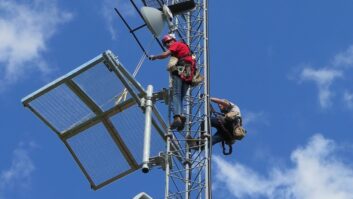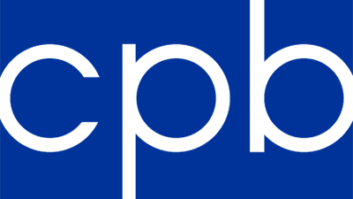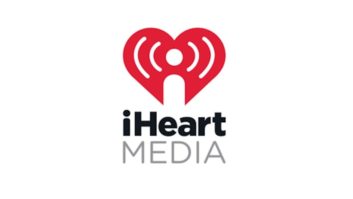Liability issues are never more than a mouse click away in today’s social media-centric world.
Perhaps you heard that the FCC plans to fine a cluster of five Clear Channel stations in Los Angeles for infractions involving an online contest. The notice of apparent liability, proposing $22,000 in penalties, was released in January and charged the stations with failing to disclose all material rules of an online contest (read more via the links page radioworld.com/Apr-11-2012).
Or maybe you’re a radio station owner or general manager with a hotshot young webmaster throwing around names like Pinterest and Tumblr that leave you wondering how to pronounce them and what they are.
Should you be concerned?
You must, at least, pay attention.

Lee Petro. ‘Broadcasters should consider a section in the employee handbook that covers social media and decide what to do when an employee tweets or posts something disparaging about an advertiser.’
Think before you post
“The game is changing. Delivery methods are changing. It’s not enough to just broadcast content over the air anymore,” said Kevin Goldberg, a member at Fletcher, Heald & Hildreth specializing in First Amendment and intellectual property issues.
As radio stations use as much social media as possible, lack of editorial control by broadcasters becomes more evident, Goldberg said.
“Things happen fast and quick. There are a lot of young people in the business who may not be legally savvy; and that scares GMs, especially considering many managers are not as familiar with social media. Stations must think before they post,” he said.
Goldberg, who will appear on an NAB Show panel discussing legalities of social media, cited a recent example of contesting by a client that presented challenges.
“This was my client’s first-ever Twitter contest. We had vetted the rules numerous times and suddenly realized a day or two before the contest was to launch that we had no way of verifying the age requirement to verify a winner.
“It’s difficult sometimes to think about all the ways a contest can go wrong. A station can be sued for fraud or breach of contract very easily,” he said.
In fact, there have been settlements for hundreds of thousands of dollars for defamation based on a single tweet or series of tweets, he said.
“You can defame someone on social media just as easily as you can over the air,” Goldberg said.
Misintepretation
Katharine Larsen, media law attorney with Levine Sullivan Koch & Schulz, said because of the constraints of social media, defamation and liability issues play out a bit differently.
“For instance, with Twitter you have to express yourself in 140 characters or less. If you end up trying to shorten the details you have to worry that a statement might be misinterpreted, or taken as untrue because of the structural constraints of Twitter.”
Larsen, a featured speaker on the NAB panel, warns broadcasters to watch for endorsement issues and commercial misrepresentation claims. Those are traps into which her clients fall occasionally.
“If you have a picture of someone pointing to a sign with your call letters and you publish it on a website, you have to have consent of that person, and written consent is best. Otherwise you have endorsement claim with possible misrepresentation,” she said.
Sites like YouTube, Facebook and Pinterest, which has gone from cult favorite to hit site since late last year with 10 million monthly U.S. visitors, present lots of copyright infringement issues, according to Claire Magee, assistant general counsel at Allbritton Communications.

Claire Magee. ‘Someone may have granted a license to use their image for public display on Twitter or on Facebook, but that person still owns the picture.’
Some managers might think, “If they uploaded it to the Internet, why can’t I use it?” However, this is not a valid defense, Magee said.
“Someone may have granted a license to use their image for public display on Twitter or on Facebook, but that person still owns the picture.” That license, she said, does not extend to you and your station.
Another common question facing broadcasters is who owns Twitter/blog/Facebook content on a page or site that was started by an employee who has left the company, said Lee Petro of Drinker Biddle & Reath.
“Broadcasters should consider a section in the employee handbook that covers social media and decide what to do when an employee tweets or posts something disparaging about an advertiser,” said Petro, who will appear on the panel.
For marketing and promotions, Petro said stations have to ensure that they own the intellectual property of the materials that they use on the various sites.
“Further, there are federal and state advertising restrictions relating to online promotions that must be followed. If stations have properly protected their own IP through copyright and trademark registrations, they can utilize social media takedown procedures to remove infringing or confusing posts.”
The session “Legal and Safe, but Sociable” is scheduled for Tuesday morning April 17, part of the Broadcast Management Conference at the NAB Show.












